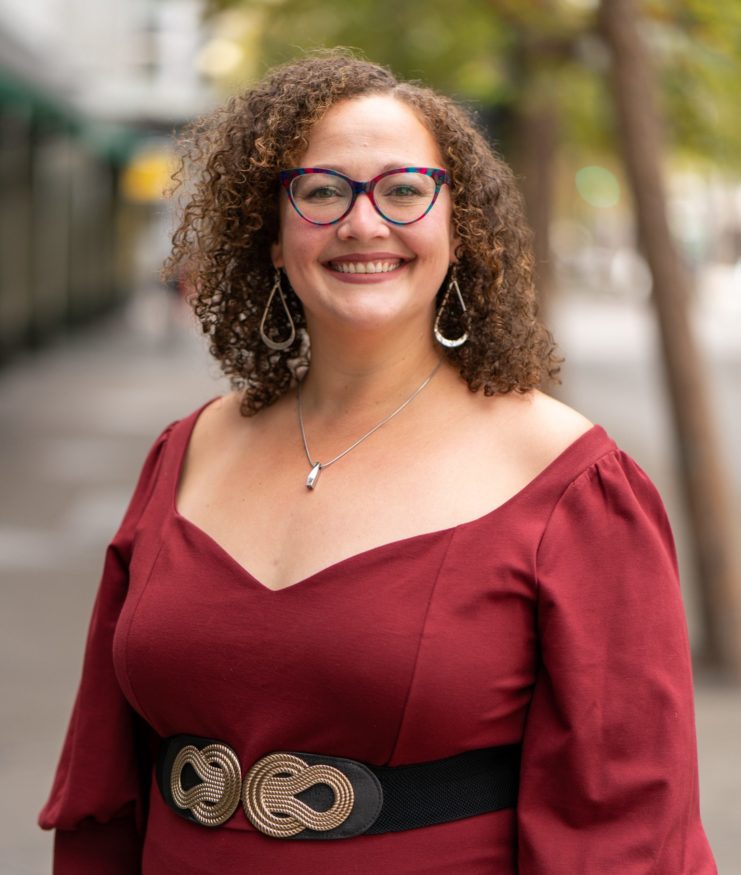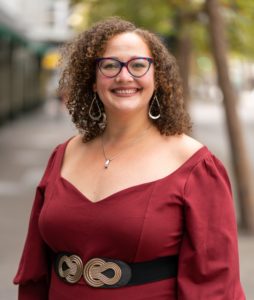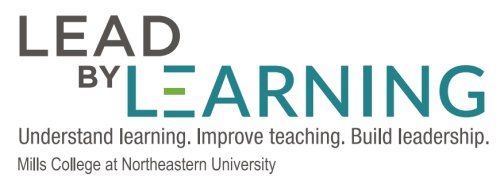
Celebrating Supportive Challenge
At the beginning of another unprecedented year, the 2021-22 school year, for educators riddled with extreme changes and new guidance, it is a daunting task to lead capable and dedicated educators as an Expanded Learning Program Manager for Oakland Unified School District. But through my work with Lead by Learning, I also knew that if I held firm to my stance as a learner and a partner we could get through this year together.
At the beginning of the school year, one Expanded Learning coordinator asked a myriad of questions about new processes. The conversations started with, “Sorry to be asking so many questions, but…” This seasoned and brilliant leader in my network was steps ahead of my office in terms of long-term thinking about new processes to support students during this challenging school year, and yet was beginning her questions with “Sorry.” This got me thinking about a shift that needed to happen in my leadership. Instead of making this coordinator feel like a “squeaky wheel” for practicing what Lead by Learning refers to as Supportive Challenge, I wanted to lift their brilliant inquiries up to and make sure that they felt empowered as a leader because of their ability to find the kinks in the system and push us all to learn and grow by supporting us to see what cannot see on our own.
As educators, we can all reach a point where we wonder if what we’re doing is being received and understood. Some may default to separating themselves off in a silo because relying on others is scary. As a leader, I want all partners to feel as if they can creatively exercise Supportive Challenge of the work without reprisal. I want Supportive Challenge to be celebrated so that conflict is no longer something to be afraid of but it is an opportunity for growth. As a leader, I hope to do this authentically, which can seem impossible at times. Though, I’ve discovered one key is taking the time to consistently reflect on how I want to be and how I want to show up.
I hold my work through the lens of values I stand for as an educator and global citizen. I am empowerment, peace, and equity for myself and others. I am White, Black, and Indigenous. I identify as a woman of color but present as white. I am aware of my own privileges due to this and continuously learning more about my impact on others every day. My identity and experiences are what drive my leadership goals.
Our family grew up poor but we still thrived. My grandfather was the first black man to own property in his Wisconsin neighborhood. But we grew up in the south, where my parents were pulled over to see if the three black preachers in the car were kidnapping my white mom and where one Sunday morning across from the high school, the KKK handed out pamphlets as we drove by to go to church. I spent my childhood fighting for acceptance. I fought against my own conditioning. I constantly had to check “Other” on forms as if I should not even exist. Through all of this, we held peace, joy, love, and laughter as central to our familial existence. As I age, those memories far out shadow the rest.
I grew into an artist: performing, writing, and creating. I held onto art during my disillusioned educational experience when I was labeled as a “Behavior Disorder” for having trauma the system was not equipped or committed to supporting. Still, for every trauma there was laughter. For every slight or fear, there was overwhelming love. For every struggle, there was humility and empathy.
These influences define my leadership in education. My experiences make me an equity-driven leader who believes that before any higher cognitive function can be achieved or maintained, students must feel they belong and that the adults around them care. It takes extreme trust to humbly live in your ignorance and we ask our students and adult partners to be in this space constantly. In order to achieve this, we need to empower our colleagues and our students to internalize learning as a safe space. As a leader, I am constantly striving to model this humility through inquiry. To ask questions so that others can listen to the answers within and build confidence in their own strengths. My experiences have taught me that my first impressions are often wrong so I continually reflect on the impact of my words and actions in order to build my capacity for compassion. My ancestors and my fire for fairness and equality have formed me into an activator. My biggest accomplishment is when others feel activated to step into their greatness by taking risks, like my colleague who engaged in Supportive Challenge, and trust that I have their backs if they fail. I also lead with faith in the grace that is within those around me.
One of my goals is to continue learning with educators at a time when their plates are so full and there is so much happening in their lives and the lives of their students. I work with a network of people capable of creating spaces that are transformative for youth and what they need most for me is to get out of their way while continuing to enrich their experiences of learning from each other. I was indoctrinated in this society to believe Leadership = Power and impenetrable strength, not collaboration. But I am empowered to analyze my actions and those around me to increase my ability to become a learner who can use data to uncover participants’ experiences. As learners, we all need to be heard, supported, asked probing questions, and feel that we are trusted and can trust others. I am reminded of a quote from a very wise dance instructor I had, “This is the first time I grew from being watered instead of being burned.” I want this for our network of adult learners.
Through collaborative inquiry and the Oakland Unified School District’s Expanded Learning team’s partnership with Lead by Learning, I have discovered 8 actions that can trigger the shift needed to move towards collaboration and collective learning.
- Cultivate and diligently practice an asset-based approach to communication with partners.
- Cultivate my ability to have courageous conversations that are rooted in action to make changes in oppressive practices and policies.
- Flatten hierarchy so that there is more opportunity to bring other voices in the spotlight. Being a Public Learner as opposed to being an expert is a powerful act.
- Recognize that confusion, questions, and Supportive Challenge, aka those “squeaky wheels,” are pushing my practice further and fostering community trust.
- Leave yourself open to the possibility of being wrong. Lead with the breath, openness, and space for inquiry.
- Practice listening and how it empowers others.
- Active awareness of the impact and intent with self-reflection as a ritual. Working with youth and adults who are constantly changing requires that we reflect and examine constantly. Reflection doesn’t happen at the moment. It happens in the space and time it takes to think about what happened without being a live participant.
- Shift perspective around pushback and support, not as something that diminishes leadership or prior choices, but elevates the system to have a greater impact on youth.
We are surrounded by a culture that forces us to build walls; walls based on outdated and oppressive constructs. True transformation is not just one “right idea.” When I cling tightly to the societal construct of power and view my relationships with those I lead as paternal I miss out on the bigger picture. I miss out on the opportunity to create synergistic transformative change; I miss out on Supportive Challenge. If I have one narrow perspective, this can never meet the needs of diverse learning. Just as some may see a relationship with youth as a one-sided imparting of knowledge instead of a reciprocal opportunity for learning. Adults we lead are often viewed the same.
We know this does not empower. I am not leading if I am imparting personal wisdom. I am lecturing, folx don’t need to be taught, they need to learn. Deep, lasting learning happens through collaborative inquiry, not speeches or top-down edicts. How much more powerful is work led by the entire people than led by one? When one is lost the movement shouldn’t die. If the movement is held by all, then it is sustainable, just, and ritualized. It transforms, it evolves with every new collaboration, and ultimately it has a greater impact.

Priscilla Parchia is a Program Manager in Oakland Unified School District’s Expanded Learning Office. She recently completed the National Afterschool Matters Fellowship and California School-Age Consortium Leadership Development Institute. She has worked in the education field since her very first job at a circus camp at 15. She worked as an out-of-school-time educator across the country as a counselor, drama instructor, choreographer, music director, program director, and stage director. She is also an artist and musician who stands for equity, empowerment, and peace for herself and all others. Currently, she supports expanded learning and summer programs across Oakland. She enjoys solitude and fellowship nature, all the arts & crafts, roller skating, and traveling across the globe as much as financially possible!
